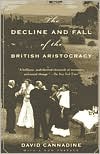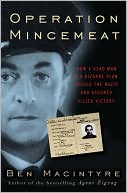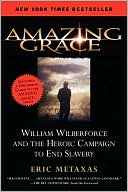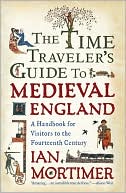The Decline and Fall of the British Aristocracy
"A brilliant, multifaceted chronicle of economic and social change." —The New York Times\ "No praise can be too high." —The New York Review of Books\ At the outset of the 1870s, the British aristocracy could rightly consider themselves the most fortunate people on earth: they held the lion's share of land, wealth, and power in the world's greatest empire. By the end of the 1930s they had lost not only a generation of sons in the First World War, but also much of their prosperity, prestige,...
Search in google:
"A brilliant, multifaceted chronicle of economic and social change." —The New York Times"No praise can be too high." —The New York Review of BooksAt the outset of the 1870s, the British aristocracy could rightly consider themselves the most fortunate people on earth: they held the lion's share of land, wealth, and power in the world's greatest empire. By the end of the 1930s they had lost not only a generation of sons in the First World War, but also much of their prosperity, prestige, and political significance.Deftly orchestrating an enormous array of documents and letters, facts, and statistics, David Cannadine shows how this shift came about—and how it was reinforced in the aftermath of the Second World War. Astonishingly learned, lucidly written, and sparkling with wit, The Decline and Fall of the British Aristocracy is a landmark study that dramatically changes our understanding of British social history."Cannadine has produced a great book, one that is comprehensive in its scope, and of critical importance." —London Review of Books Library Journal Columbia historian Cannadine offers a detailed study of the decline of the ``British landed establishment'' from 1880 to the present, due to political, economic, and social changes. Most of his analysis is centered on the period which saw the biggest changes, 1880-1930, and concentrates on England, while touching on Scotland, Ireland, and Wales. Intertwined in the overall picture are tidbits about notable families. Cannadine has synthesized a multitude of secondary sources for this work. He includes a detailed index which, however, lacks some names and subjects. His dense book is much too long for the general reader. Primarily for students and specialists working on this topic.-- Kathleen Farago, Lakewood P.L., Ohio
Preface to the Vintage EditionPreface to the 1992 EditionList of AbbreviationsA Note on Sources1Prologue: Presuppositions and Problems12The Embattled Elite353The Decline and Dispersal of Territorial Wealth884The Erosion of Local Control1395The Eclipse of a Senatorial Order1826The Demise of Patrician Professionals2367The 'Corruption' of Public Life2978The Dilution of Select Society3419From Leisured Class to Labouring Aristocracy39110Lost Causes and Disappointed Hopes44511The Politics of Paranoia50012The Reconstruction of Social Prestige55713The Second World War60614The End of the Affair63715Epilogue: Perceptions and Perspectives697App. AThe Greatest British Landowners, c. 1880710App. BPatrician Members of British Cabinets, 1880-1980711App. CSenior Posts in the Foreign and Diplomatic Services712App. DTitled Company Directors, 1896 and 1920717App. EPatrician Mayors of British Towns, 1880-1945718App. FChancellors of British Universities, 1880-1945720App. GViceroys of India and Governors-General of British Dominions723App. HPatterns of Estate Ownership, 1876-1976725Notes727Index794
\ Library JournalColumbia historian Cannadine offers a detailed study of the decline of the ``British landed establishment'' from 1880 to the present, due to political, economic, and social changes. Most of his analysis is centered on the period which saw the biggest changes, 1880-1930, and concentrates on England, while touching on Scotland, Ireland, and Wales. Intertwined in the overall picture are tidbits about notable families. Cannadine has synthesized a multitude of secondary sources for this work. He includes a detailed index which, however, lacks some names and subjects. His dense book is much too long for the general reader. Primarily for students and specialists working on this topic.-- Kathleen Farago, Lakewood P.L., Ohio\ \








